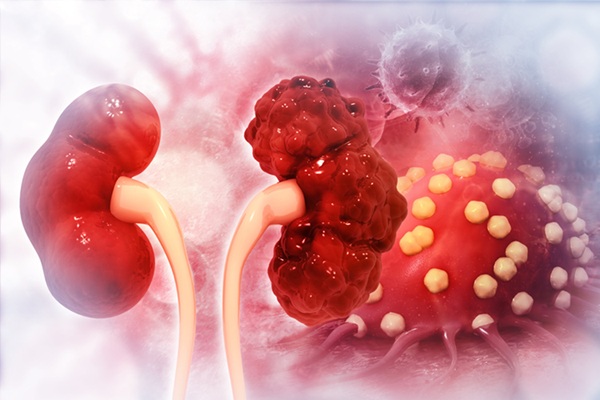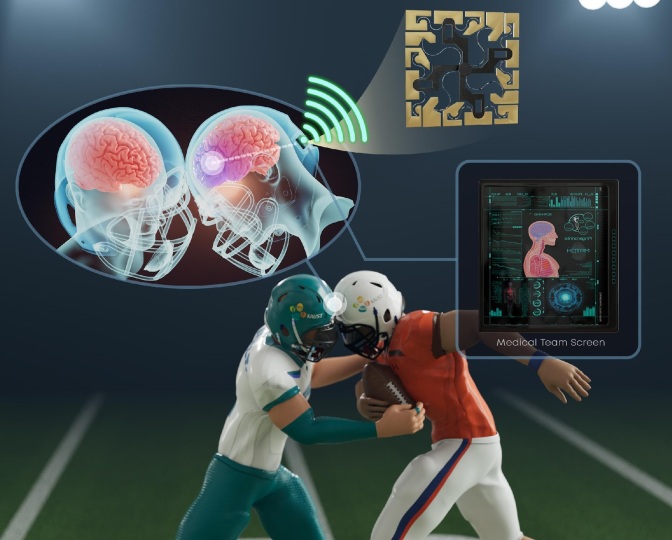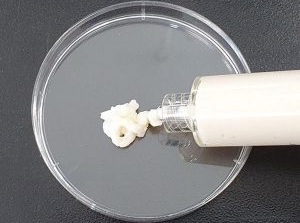AI Drives an All-in-One Medical Image Diagnosis System
|
By HospiMedica International staff writers Posted on 07 Jan 2019 |
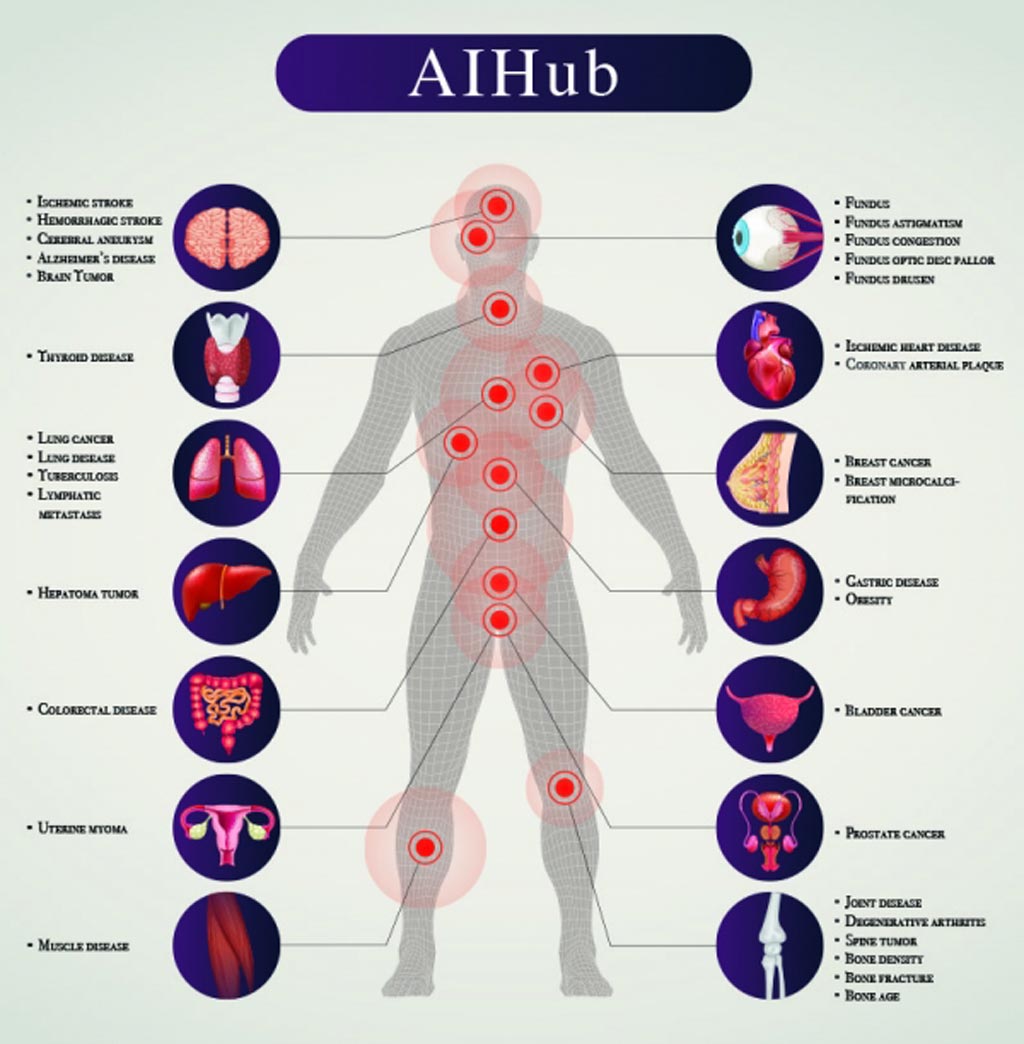
Image: AI HUB, an AI medical all-in-one platform (Photo courtesy of JLK Inspection).
An innovative predictive medical image diagnosis platform has the ability to detect and monitor more than 30 medical conditions from 14 regions of the body with pinpoint accuracy.
The JLK Inspection (Seoul, Korea) AIHuB diagnostics platform is an on-site universal artificial intelligence (AI) system that allows physicians to diagnose disease from medical images in a faster, more accurate manner, all from the convenience of a single central core. AIHuB is focused on brain pathologies and diseases such as ischemic strokes, hemorrhagic strokes, brain aneurysms, and Alzheimer's disease, as well as lung cancer, prostate cancer, breast cancer, and coronary artery disease.
The AIHuB carries out digital pathology from diverse imaging modalities, including magnetic resonance imaging (MRI), computerized tomography (CT), X-ray, and breast mammography, providing an objective AI-based analysis in a simple format. Utilizing the user-friendly interface, the AIHuB platform can provide clinicians with high-quality medical management, efficient medical treatment, and transparent medical services that seamlessly connect with all other in-hospital systems, including neural network solvers and libraries.
“We are excited to show how we are able to assist users with quantitative analysis of their medical images at their own convenience,” said Won Tae Kim, CEO of JLK Inspection. “The ability to provide optimal diagnosis support based on deep learning technologies, unique algorithms and imaging procession techniques will be a great benefit to all patients, whether suffering from minor or major ailments.”
Most of medical information today is stored digitally, but image data, findings, lab values, digital patient records, and surgery reports are handled separately. Data integration into one unified framework can enable faster handling of medical information and lay the foundation for efficient interaction between different specialties, enabling more precise and personalized clinical decisions.
Related Links:
JLK Inspection
The JLK Inspection (Seoul, Korea) AIHuB diagnostics platform is an on-site universal artificial intelligence (AI) system that allows physicians to diagnose disease from medical images in a faster, more accurate manner, all from the convenience of a single central core. AIHuB is focused on brain pathologies and diseases such as ischemic strokes, hemorrhagic strokes, brain aneurysms, and Alzheimer's disease, as well as lung cancer, prostate cancer, breast cancer, and coronary artery disease.
The AIHuB carries out digital pathology from diverse imaging modalities, including magnetic resonance imaging (MRI), computerized tomography (CT), X-ray, and breast mammography, providing an objective AI-based analysis in a simple format. Utilizing the user-friendly interface, the AIHuB platform can provide clinicians with high-quality medical management, efficient medical treatment, and transparent medical services that seamlessly connect with all other in-hospital systems, including neural network solvers and libraries.
“We are excited to show how we are able to assist users with quantitative analysis of their medical images at their own convenience,” said Won Tae Kim, CEO of JLK Inspection. “The ability to provide optimal diagnosis support based on deep learning technologies, unique algorithms and imaging procession techniques will be a great benefit to all patients, whether suffering from minor or major ailments.”
Most of medical information today is stored digitally, but image data, findings, lab values, digital patient records, and surgery reports are handled separately. Data integration into one unified framework can enable faster handling of medical information and lay the foundation for efficient interaction between different specialties, enabling more precise and personalized clinical decisions.
Related Links:
JLK Inspection
Channels
Artificial Intelligence
view channelCritical Care
view channel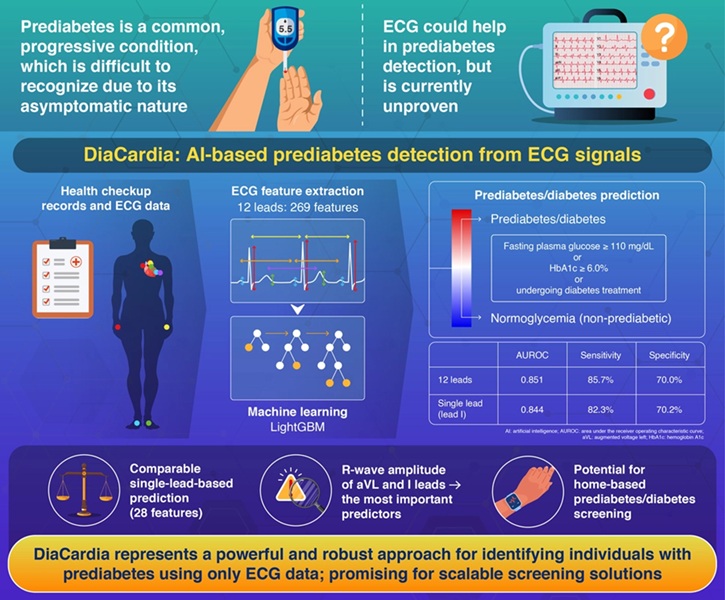
AI Model Accurately Identifies Prediabetics Using Only ECG Data
Prediabetes is a silent metabolic condition that often goes undetected because it causes no obvious symptoms and typically requires blood tests for diagnosis. Low participation in routine health checkups... Read more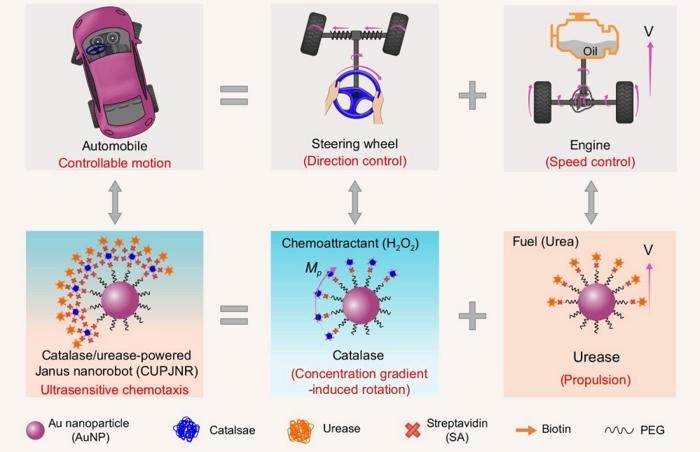
Injectable Disease-Fighting Nanorobots to Improve Precision Cancer Therapy
For decades, nanomedicine has promised injectable nanorobots that could actively seek out disease, but turning that vision into reality has remained elusive. Cancer therapy, in particular, is limited by... Read moreSurgical Techniques
view channel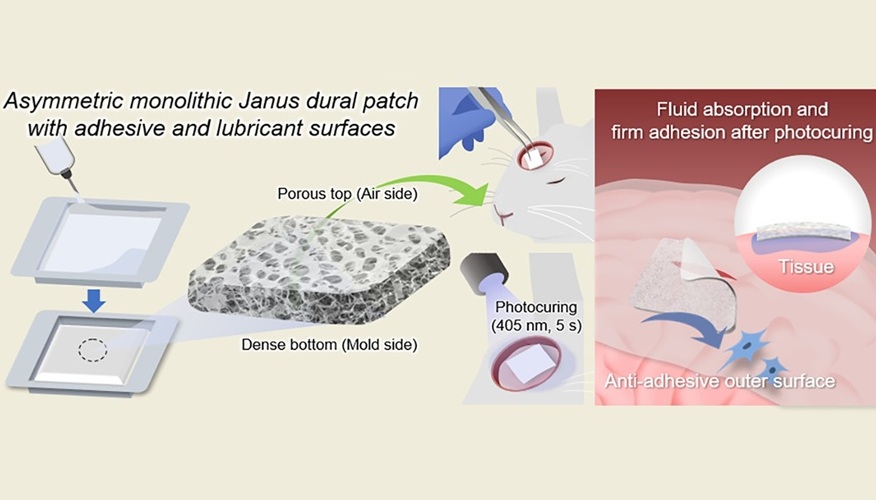
Light-Activated Tissue Adhesive Patch Achieves Rapid and Watertight Neurosurgical Sealing
Durotomy, a tear in the dura mater during neurosurgery, can lead to cerebrospinal fluid leakage, delayed healing, headaches, and serious infections. Achieving a reliable, watertight dural closure is therefore... Read more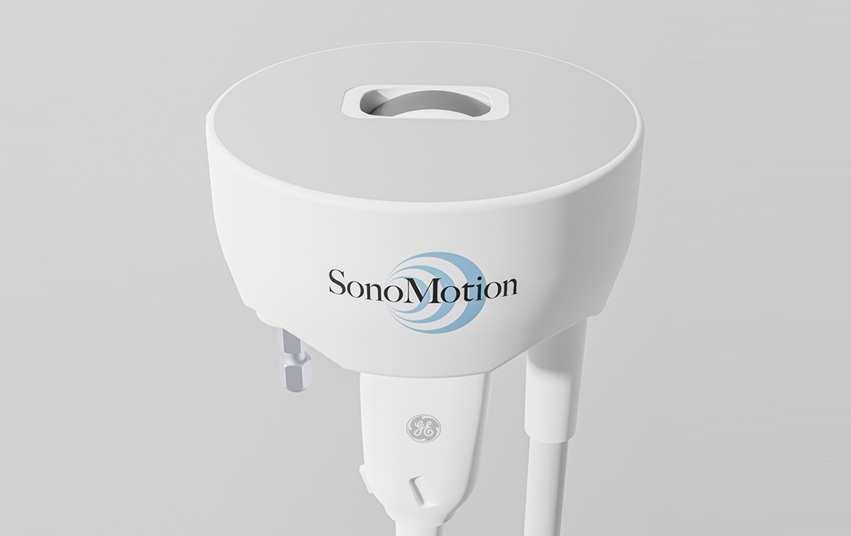
Ultrasound Device Offers Non-Invasive Treatment for Kidney Stones
The U.S. Food and Drug Administration has granted 510(k) clearance to SonoMotion’s Break Wave lithotripsy device, which fragments stones non-invasively with focused ultrasound and requires no anesthesia.... Read more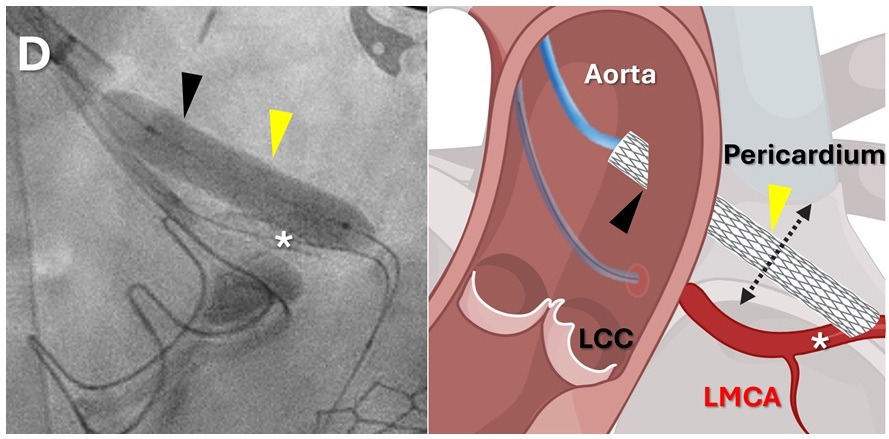
Minimally Invasive Coronary Artery Bypass Method Offers Safer Alternative to Open-Heart Surgery
Coronary artery obstruction is a rare but often fatal complication of heart-valve replacement, particularly in patients with complex anatomy or prior cardiac interventions. In such cases, traditional open-heart... Read morePatient Care
view channel
Revolutionary Automatic IV-Line Flushing Device to Enhance Infusion Care
More than 80% of in-hospital patients receive intravenous (IV) therapy. Every dose of IV medicine delivered in a small volume (<250 mL) infusion bag should be followed by subsequent flushing to ensure... Read more
VR Training Tool Combats Contamination of Portable Medical Equipment
Healthcare-associated infections (HAIs) impact one in every 31 patients, cause nearly 100,000 deaths each year, and cost USD 28.4 billion in direct medical expenses. Notably, up to 75% of these infections... Read more
Portable Biosensor Platform to Reduce Hospital-Acquired Infections
Approximately 4 million patients in the European Union acquire healthcare-associated infections (HAIs) or nosocomial infections each year, with around 37,000 deaths directly resulting from these infections,... Read moreFirst-Of-Its-Kind Portable Germicidal Light Technology Disinfects High-Touch Clinical Surfaces in Seconds
Reducing healthcare-acquired infections (HAIs) remains a pressing issue within global healthcare systems. In the United States alone, 1.7 million patients contract HAIs annually, leading to approximately... Read moreHealth IT
view channel
EMR-Based Tool Predicts Graft Failure After Kidney Transplant
Kidney transplantation offers patients with end-stage kidney disease longer survival and better quality of life than dialysis, yet graft failure remains a major challenge. Although a successful transplant... Read more
Printable Molecule-Selective Nanoparticles Enable Mass Production of Wearable Biosensors
The future of medicine is likely to focus on the personalization of healthcare—understanding exactly what an individual requires and delivering the appropriate combination of nutrients, metabolites, and... Read moreBusiness
view channel
WHX in Dubai (formerly Arab Health) to bring together key UAE government entities during the groundbreaking 2026 edition
World Health Expo (WHX), formerly Arab Health, will bring together the UAE’s health authorities and leading healthcare sector bodies when the exhibition debuts at the Dubai Exhibition Centre (DEC) from... Read more
Interoperability Push Fuels Surge in Healthcare IT Market
Hospitals still struggle to reconcile data scattered across electronic health records, laboratory systems, and billing platforms, undermining care coordination and operational efficiency.... Read more













